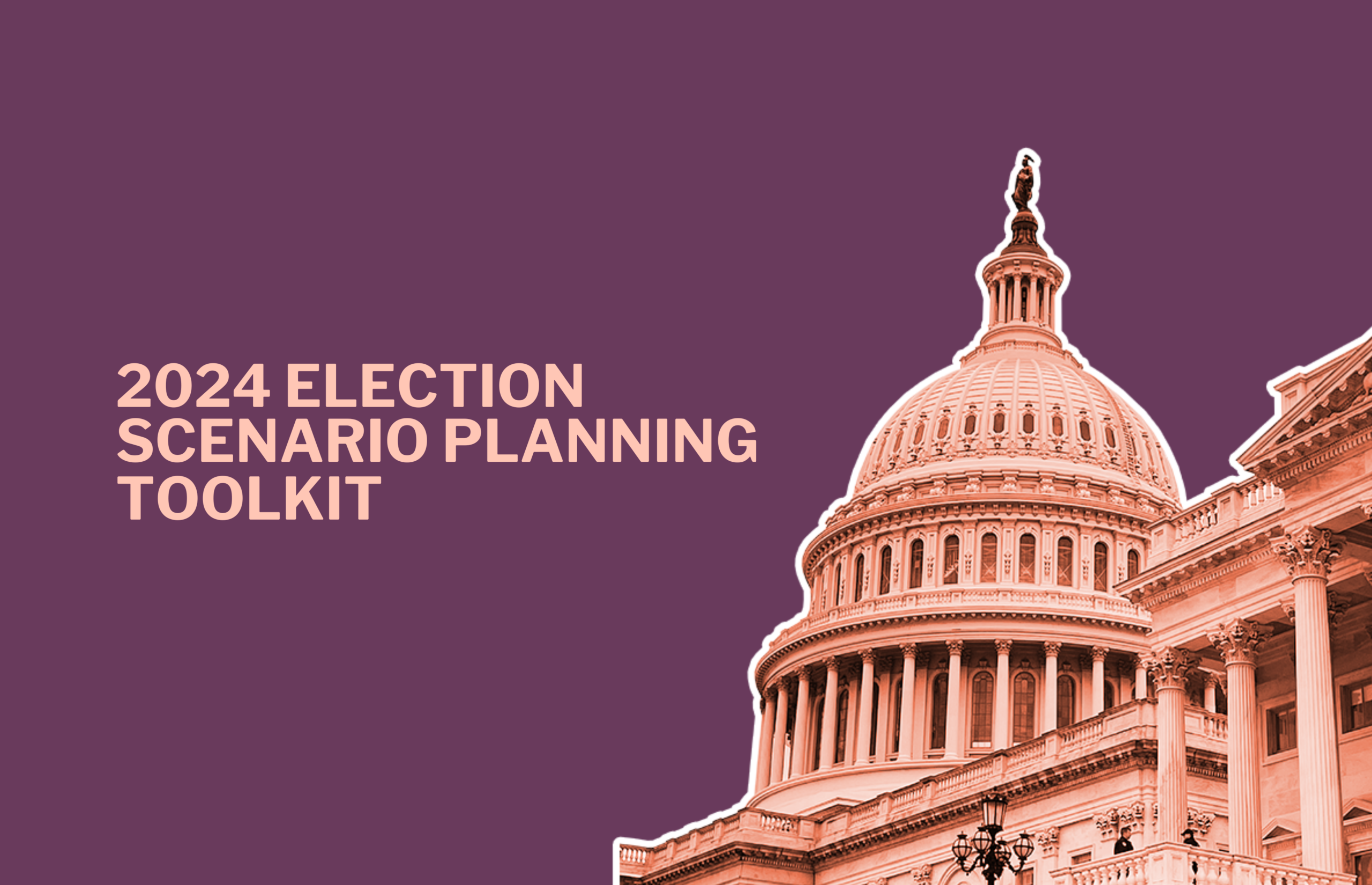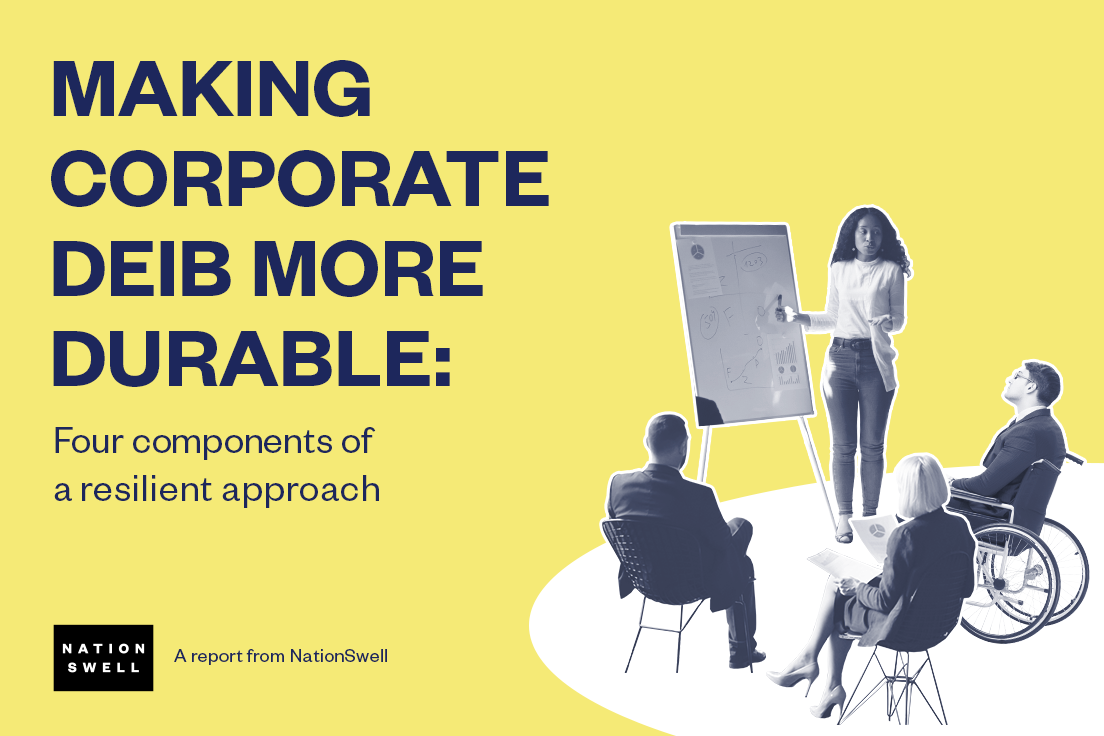2024 private sector social impact and sustainability leadership survey
NationSwell’s 3rd annual Private sector social impact and sustainability leadership survey coincided with a period of significant turmoil in the U.S. political arena, and occurred against a backdrop of ongoing backlash to corporate social impact, diversity, equity, inclusion, and belonging (DEIB), and environmental initiatives.
The survey sought to better understand the sentiments, experiences, and priorities of senior leaders overseeing environment, social, and governance (ESG), corporate social impact, sustainability, DEIB, and related functions. Through those leaders, the survey also sought to better understand organizational priorities and behaviors.
The 2024 survey explored three themes in particular depth: perceptions of – and attitudes toward – the overall environment for corporate impact and sustainability initiatives, the amount of influence wielded by social impact and sustainability leaders within their own organizations, and the role of political and cultural forces on their work.
Summary of top findings
- Leaders continue to face down a difficult environment for their work, but growing optimism is there if you squint
- Despite ongoing backlash to ESG, impact and sustainability leaders are strengthening their positions within their organizations
- U.S. politics loom large over corporate impact and sustainability programs, with most leaders expecting their organizations to remain on the sidelines during the 2024 election
Methodology and sample
NationSwell fielded this survey from early July through early August 2024. Participants included vice presidents (VPs) and above at public companies, private companies, and company-sponsored foundations. The survey garnered responses from 49 individuals, representing 47 unique institutions.


























